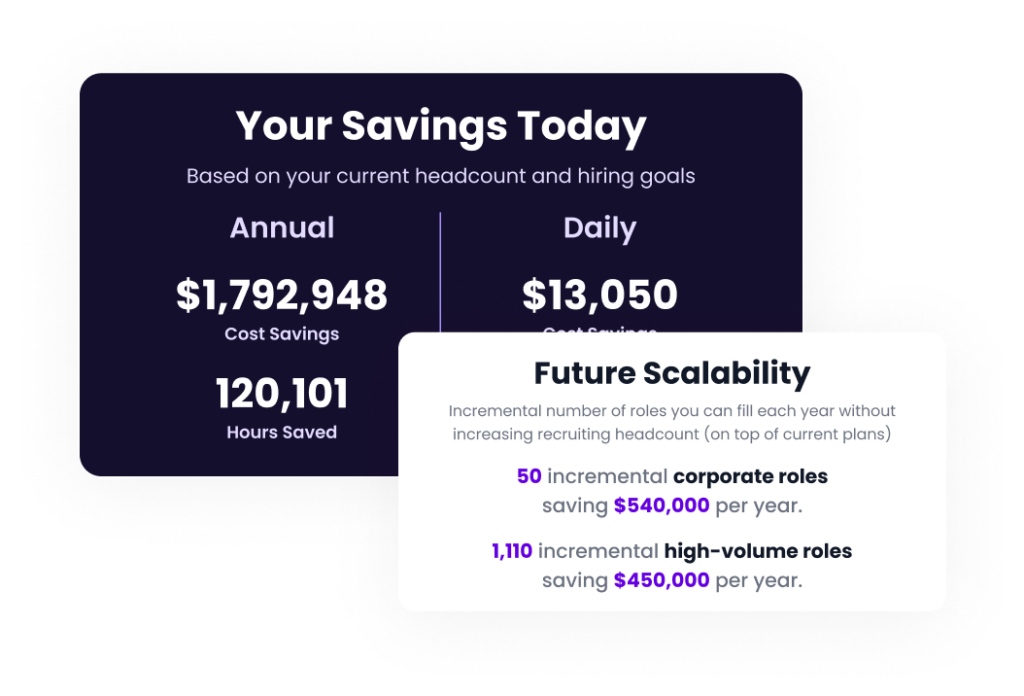The tech recruiting world is changing — and fast.
Between the tumultuous years of 2019-2021, the tech recruiting landscape faced notable shifts. Tech hiring growth strongly recovered in 2021, with the overall advertisements for tech jobs in 2021 being nearly double the number for 2019 and 2020. Even though the world’s tech giants continue to expand their influence, non-Fortune 500 tech companies made up the bulk of recent hiring growth.
While tech hiring surges, applicant pools dwindle. Compared to the average candidate pool sizes from 2020, the sizes were 35% lower in 2021. Not only that, but amid the Great Resignation, candidates have had a change of heart. Candidates no longer want to waste time at organizations that don’t live up to their expectations of the ideal employer. In fact, three-quarters of candidates say they’re considering leaving their jobs.
It’s prime time for growing tech companies to stand out from Big Tech recruiting and snag the best candidates, but only if they can handle the shifting state of applicant pools and meet tech hiring challenges head-on.
To keep pace with the ever-changing world of tech recruitment and to differentiate your company from the competition, take a good look at your recruitment strategies — they’re probably long overdue for a makeover.
Here are four key ways you can compete with Big Tech recruitment teams and land top candidates.
Does interview scheduling automation make sense for my team?
ROI is key. This is not a time to invest in software that won’t bring you immediate value. So let’s eliminate the guesswork with our free ROI calculator.

1. Offer Remote Work Opportunities
The gravitational pull between candidates and remote work opportunities is undeniable. To stay competitive with the big tech recruiting teams, you need to consider making remote work a reality for your organization.
If you’re not offering remote opportunities, you’re missing out on candidates. 75% of tech industry workers say it’s important for their company to allow them to work remotely indefinitely. Despite the desire to work remotely, it seems that each day a top tech company discloses their plans for an eventual return to office.
The fact is that a growing majority of people don’t want to work unless it’s from home. Offering remote options is the way to go, but there’s one caveat: it’s common for tech industry candidates who seek remote work outside of Big Tech companies to expect Big Tech salaries. If your organization can’t meet these expectations, be prepared to upgrade other elements of your compensation and benefits.
2. Show Leniency in Degree Requirements
With a number of Big Tech companies no longer requiring degrees and 90% of employers reportedly open to accepting candidates without four-year college degrees, it’s time to change your expectations on a candidate’s education.
The idea that a college degree is the surest path to a career is now antiquated. Boot camps, digital badges, vocational programs, and self-taught skills demonstrate just as much, or more, competencies necessary to excel in a professional environment.
Removing your degree requirements isn’t just a way to keep pace with the tech talent competition — from a DEI standpoint, it’s also the right thing to do. A college degree is a pricey investment that a wide range of applicants cannot afford. By removing degree requirements, you’ll create an equitable playing field for candidates of all socioeconomic backgrounds, benefit from a diversity of educational experiences, and widen your talent pool all in one fell swoop.
3. Emphasize Your Company’s Continuous Growth
Working at a tech giant with a household name may sound alluring, but don’t discount how enticing it is to work for a company with much untapped potential.
When carving out your employee value proposition, emphasize the immense learning opportunities that come with working at a company with a focus on growing and scaling. This may be just the thing that attracts the attention of Gen Z, the future leaders of the tech workforce.
Among Gen Z-ers who plan on leaving their current roles, 76% of this cohort indicate that they’re looking for more opportunities to learn and gain new skills, which is more than any other age group before them. To win the hearts of Gen Z, capitalize on the growth potential of your organization. Turn your growth potential into a selling point that speaks to the opportunities that you offer in thinking outside of the box and contributing to innovation.
4. Provide What Candidates Expect: Strong Candidate Relationships
If your tech recruitment team doesn’t instill energy into generating memorable candidate relationships, you’ve already lost in the competition for tech talent.
A great candidate experience might have won candidates over in the past, but not anymore. Today’s candidates expect something deeper. Candidates want to feel valued before, during, and after the hiring process, yet more and more companies find themselves losing out on desirable candidates due to their own impersonal processes.
Don’t make that the reality for your organization. GoodTime Hire leverages Candidate Relationship Intelligence to help you transcend temporary experiences and create the type of high-quality connections that win the best talent.
Request a demo to see how Hire provides the edge that talent teams need to need stand out from the competition.




